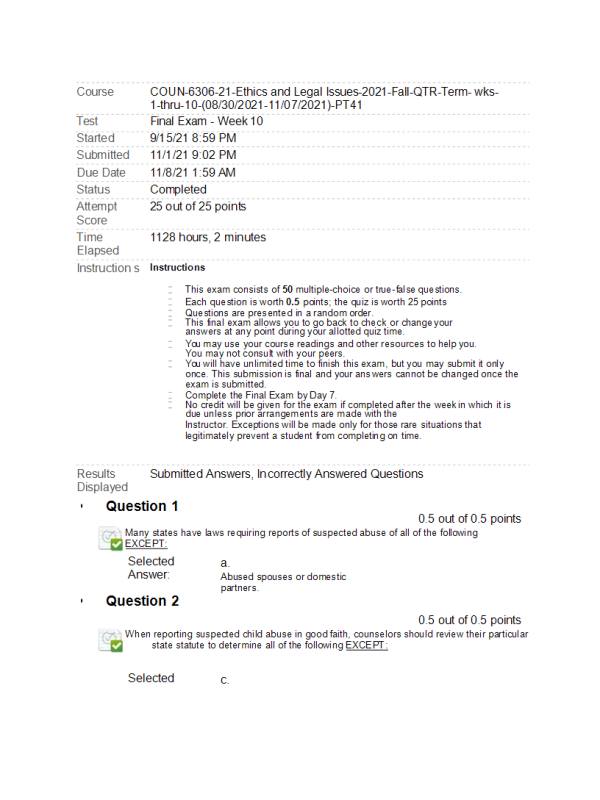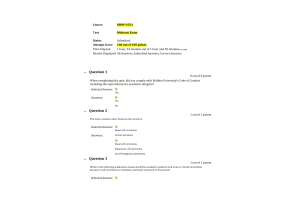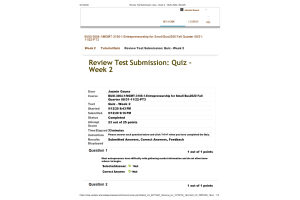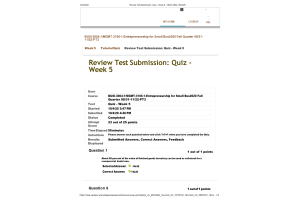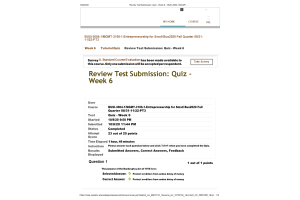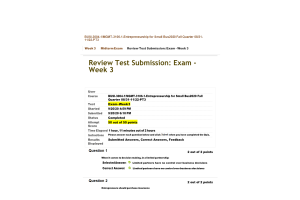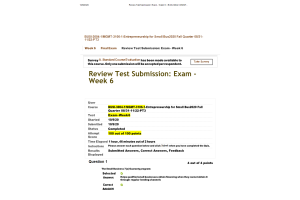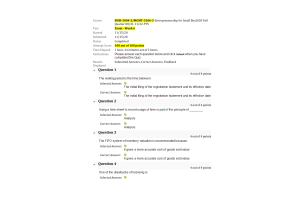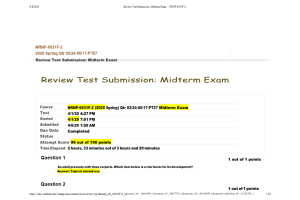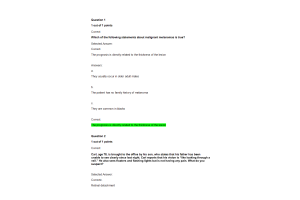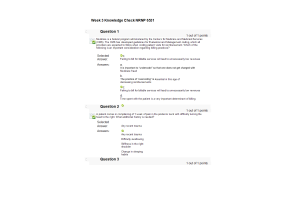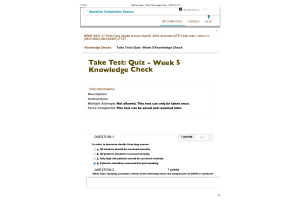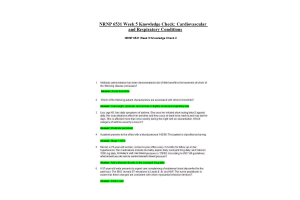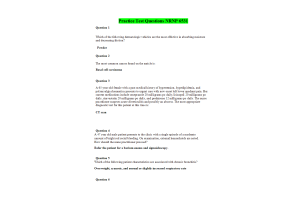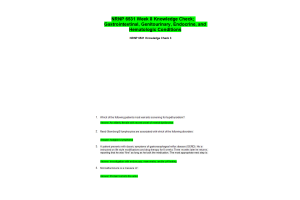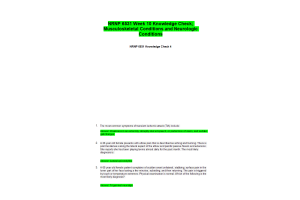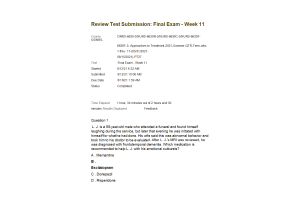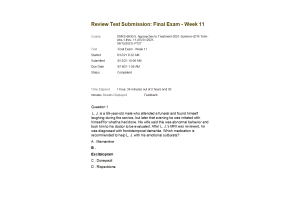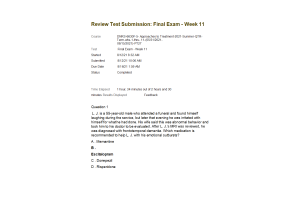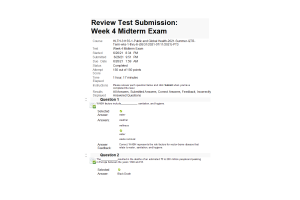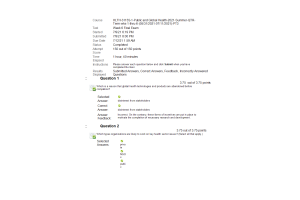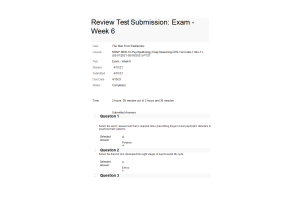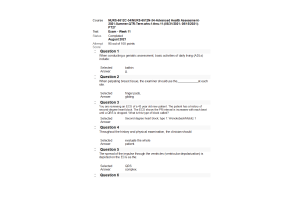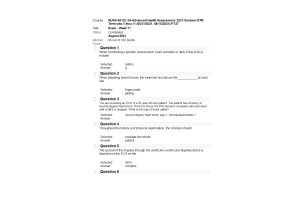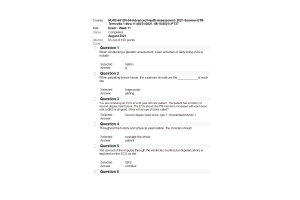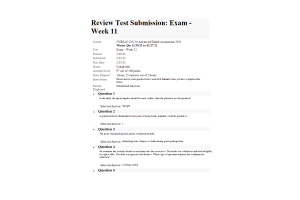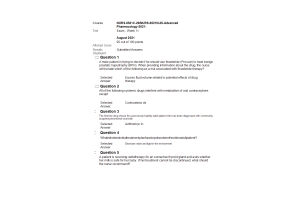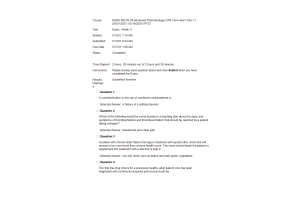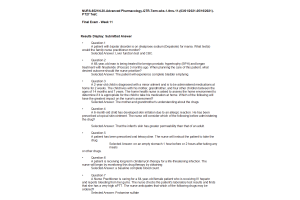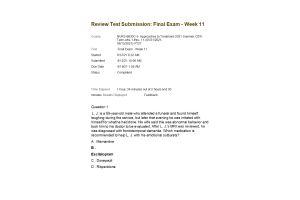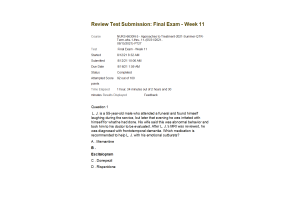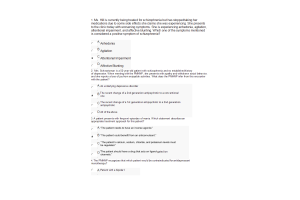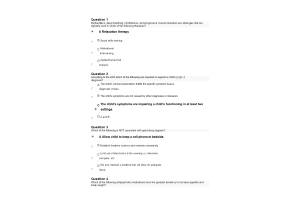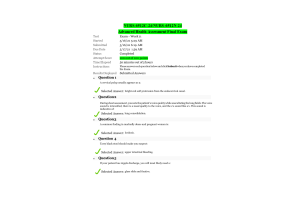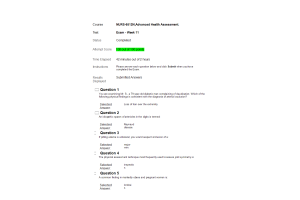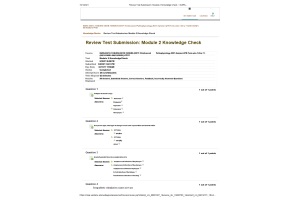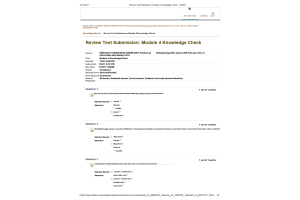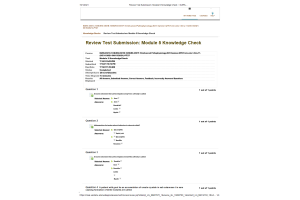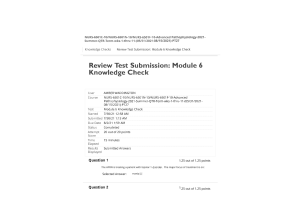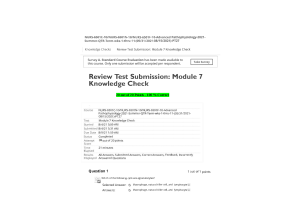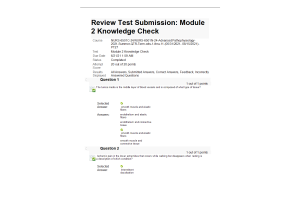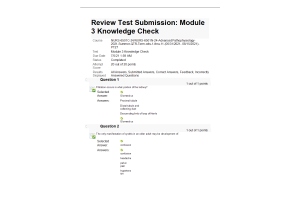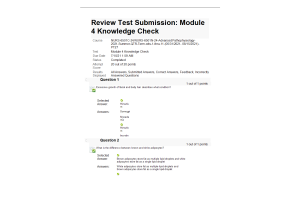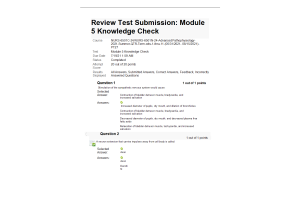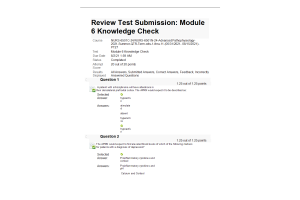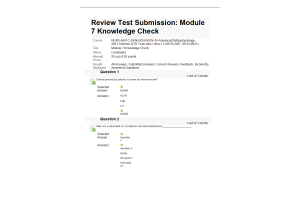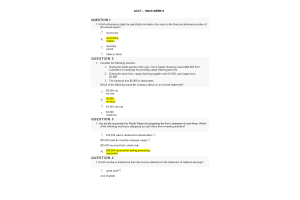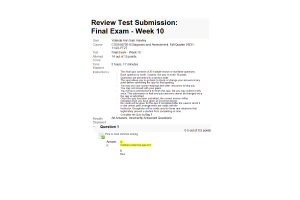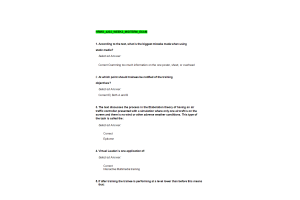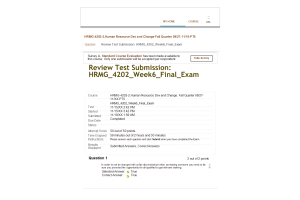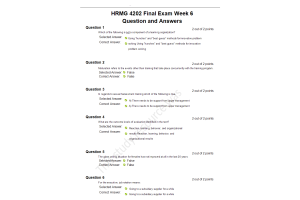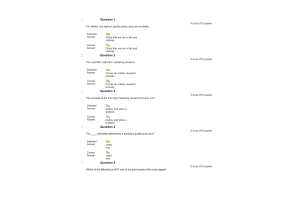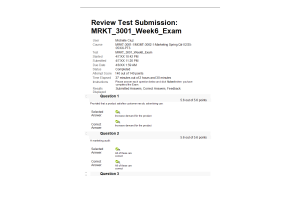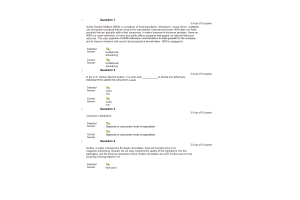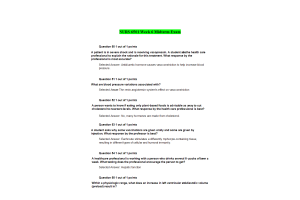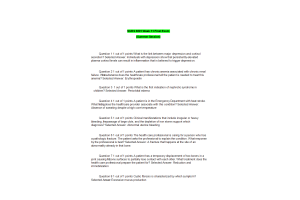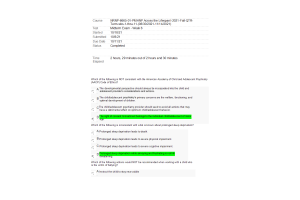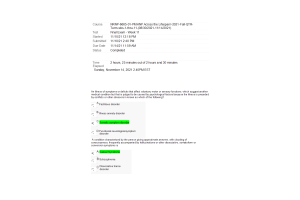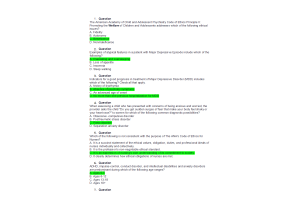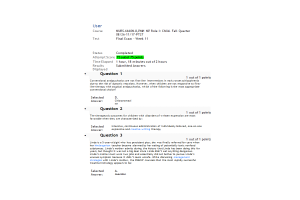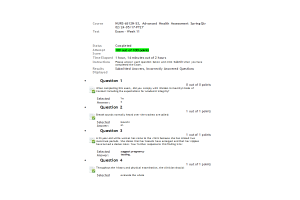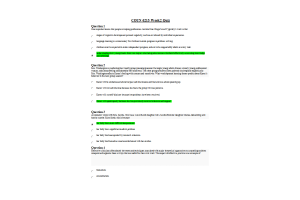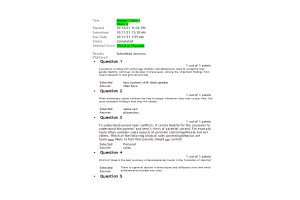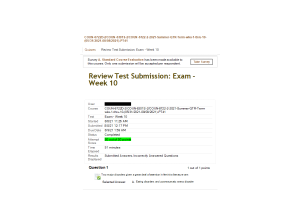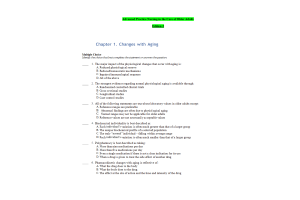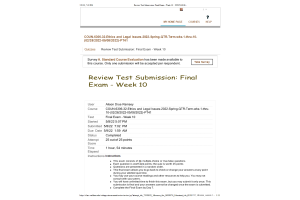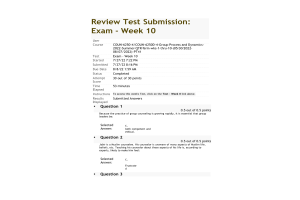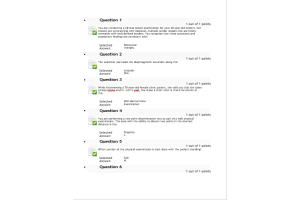COUN 6306-21 Week 10 Final Exam (Score 25 out of 25 Points)
- $39.00
- Question: Many states have laws requiring reports of suspected abuse of all of the following EXCEPT:
- Question: When reporting suspected child abuse in good faith, counselors should review their particular state statute to determine all of the following EXCEPT:
- Question: In order for a counselor to be competent to engage in group work, the counselor
- Question: The primary purpose of the ACA Code of Ethics is
- Question: If a subpoena for the counseling records of a client is received, a counselor who works in a mental health agency should
- Question: Pre-screening of group members
- Question: Parents who object to their child’s participation in counseling
- Question: The Council for Accreditation of Counseling and Related Educational Programs (CACREP)
- Question: +-Informed consent in group counseling should include
- Question: It would be ethically permissible for you to consider entering into a bartering arrangement with a prospective client if
- Question: Generally, counselors create clinical case notes
- Question: Studies regarding cultural bias in diagnosis have shown that
- Question: Within the counseling profession, the primary national voluntary certification agency is
- Question: As advocates, counselors are aware that
- Question: A counselor’s self-disclosure in a counseling session
- Question: If a counselor wants a person other than a biological parent (such as a step-parent or grandparent) to have confidential information regarding a child client, a simple solution is to
- Question: Competence is most closely related to the moral principle of
- Question: In the process of explaining informed consent in family counseling, counselors should
- Question: If a counselor is asked to disclose privileged information about a client who cannot be located, then the obligation to assert the privilege rests with
- Question: A fundamental tenet of the wellness model is that
- Question: When a husband subpoenas a counselor to reveal information in a court hearing that was provided by the wife in joint couples counseling sessions, and the wife objects to the information being revealed, the counselor
- Question: Malpractice is a type of civil lawsuit that can be filed against counseling professionals for practicing in a manner that leads to
- Question: Privileged communication statutes
- Question: The term “culturally encapsulated counselor” refers to a counselor who
- Question: Boundaries serve to protect the welfare of clientsbecause
- Question: Cultural competencies in working with LGBTQIQ clients include
- Question: It is impossible for counselors to understand all aspects of the law but the best advice for counselors who face legal questions is to
- Question: The primary difference between counselors and other mental health professionals is
- Question: Family counselors often view the family system as their client and treat the family as one entity, as opposed to treating individual family members, and our laws
- Question: Minor clients have
- Question: The following are true of distance counseling services EXCEPT:
- Question: Counselors who work in the military may encounter unavoidable dual relationship issues because
- Question: In distance1 counseling, informed consent shouldinclude
- Question: When the client is deceased and there is no statutory language dealing with privilege and the death of the holder, the individual who usually is allowed to assert the privilege is
- Question: The primary purpose of diagnosis is to
- Question: The standard used to determine whether a particular counselor is qualified to administer and interpret a particular test
- Question: The Family Educational Rights and Privacy Act of 1974 (FERPA), which is sometimes referred to as the “Buckley Amendment,” affects all.
- Question: Distressed counselors or counselors suffering from burnout are terms used to refer to
- Question: Friendships with former clients
- Question: Supervision agreements between a clinical supervisor and supervisee
- Question: In distance counseling, counselors may be subject to
- Question: Breaches of client confidentiality by counselors
- Question: A counselor who is under the clinical supervision of another counselor should
- Question: All of the following are challenges associated with distance counseling, EXCEPT:
- Question: Be a culturally sensitive counselor, when a client from a different culture offers a counselor a gift, the counselor
- Question: Law and ethics differ in that
- Question: The best statement about the nature of professional ethics in counseling is that
- Question: Core belief that members of the counseling profession hold concerning helping others with their mental health concerns is
- Question: At their most fundamental level, codes of ethics serve to
- Question: Counselors who function according to mandatory ethics
